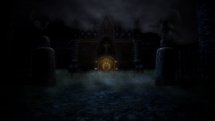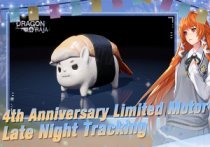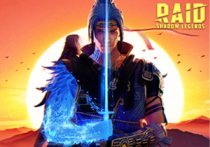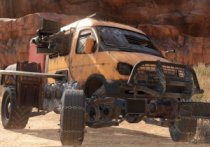Illyriad goes Organic – questions and answers

On April 23, Illyriad switched its world biology from a random generator to a new “organic” model.
Before, animals and troops were distributed randomly on the map; these have now been changed to follow a more logical model that follows animal habitats, breeding, and migration. This new system tracks over 1,500 variables and thousands of non-player populations and player interactions.
As a step in the growth of Illyriad, which will also include development of the NPC Factions system and a redesign of trade and economics, this change has warranted an FAQ from Illyriad, who explains the changes in depth:
Q: Illyriad’s new release changes the way that non-player characters behave in the game world. So is this an Artificial Intelligence upgrade?
James Niesewand, creator of Illyriad: It isn’t simply about having some artificial intelligence routines. We’ve built an organic intelligence system which allows us to model Mother Nature at a macro level, using fuzzy rules rather than scripted intelligence. Rather than have us seed the world with random groups of animals, armies, and so on, all with scripted behaviours, we have settled populations on the world, and built systems that influence their movement, breeding, aggression, and so on.
Q: Is this a system that the developers are particularly pleased with?
James: Pleased? To some extent, yes. We have some very cool maths here, and programmers like maths. But mainly, we’re excited. We don’t know of any other browser games that are attempting this kind of organic system. We’re using maths to simulate nature itself, which is a big deal for any game. And because our wonderfully unpredictable players are part of the system, because their actions have such a big impact, we have no idea what the exact consequences will be. That’s pretty exciting!
Q: In practical terms, how will this show itself to the players?
James: The first thing that players will notice with the animal populations, is that they now move around the map, with their herds or packs growing as they breed, and then dividing to form new populations. It will take longer for the depth of the logic to become apparent.
Q: What sort of behaviour will become apparent after that?
James: Players will soon notice that different animal populations thrive in specific biomes, regions and terrains. Migration patterns will develop organically, and will change as the players’ behaviours change. Of course population levels will be impacted by the players’ behaviours: the players are part of the system. So, as an example, without player intervention, if a pack or herd strays into territory where food is scarce, they will start to die off. And with player intervention there could be radical impacts on the populations of individual species, for example through over-hunting or player settlements.
Q: And in the longer term?
James: Illyriad’s world operates on a real annual cycle, so it will be a while before seasonal animal migrations become apparent, for example. Beyond that, there may be extreme impacts on the populations and distributions of different species, but as developers even we don’t know what the outcomes will be.
Q: How can the developers not know what the results will be?
James: Because we aren’t scripting specific behaviours, where we know that a chain of events will unfold. We’re creating a framework and then unleashing an intelligence within that. Since the players are part of that system, and we have no wish to control our players’ actions, we don’t know how it will unfold.
Q: What are the limitations of the system?
James: We’ve limited ourselves in two ways.
First, there’s no point simulating factors that the players can’t hope to understand. For example, it will make intuitive sense if animals tend to drift away from heavily populated areas, or if aggressive animals attack defenceless prey, or if populations are reduced by over-hunting, yes? But if we started to invisibly simulate the movements of prey animals that aren’t on the map, like rabbit populations for wolves to feed on, then we’d be introducing what would look like randomness – and that won’t make the game a more interesting place, just a more perplexing one.
Second, there are some hard and fast constraints. So, we do not allow extinction events. Players’ hunting and NPC interactions can massively vary species’ populations, but no species will ever be wiped out entirely. In the future players will need access to certain animal populations for different reasons, so, however zealous players may be in trying to eradicate certain species, they will never be entirely successful.
Q: So what is next for Illyriad? Is this organic system something that future releases will build on?
A: Certainly we will be building on this organic foundation. But we want to watch how it develops, what consequences emerge, before we build on or tinker with it. So the next couple of releases will be expanding other areas of Illyriad.
Illyriad Gameplay Screenshot
Source:
Illyriad Goes Organic
April23rd 2012; London, UK: From today, acclaimed Free-to-Play Strategy game, Illyriad, will switch from a randomly-generated world biology, to an organic and emergent model.
Simplistic random distributions of animals and troops have been replaced with a coherent, logical model, encompassing different animal habitats, breeding, and migration. The mathematics behind the calculations include over 1,500 variables, and the game database tracks thousands of non-player populations, whose numbers and attitudes will be determined by players’ interactions with them.
“The depth of Illyriad has always been important to us as developers, just as it has been important to our players, and has been noted by the press,” explains Illyriad’s founder, James Niesewand.
“So we wanted the non-player populations to behave sensibly, and organically, in response to players’ actions. As an example, animal populations in Illyriad have previously appeared randomly; now, each pack or herd of animals will be tracked in real time, its population increasing over time, and the pack splitting when the population grows to a certain point. Players will be able to dramatically impact the sizes of animal populations, which will have multiple consequences.”
These changes are not only an evolution in the design of strategy games. They are also an important step in the growth of Illyriad itself, a necessary precursor to an overhauled trade and economic system, and further development of the NPC Factions systems, expected later this year.
Illyriad’s latest release, including organic animal populations, and other features, goes live from today.
Articles You May Enjoy
- MU Legend to Get New Spellbinder Class in March
- A Spellbinder is a support mage that utilizes psychic powers to strike down their foes using levitating swords and thrown weapons.
- Black Desert Online Launches on Steam May 24
- Kakao Games and PearlAbyss have announced that its MMORPG Black Desert Online will be made available on Steam in North America and Europe.
- Fantasy Mobile Game, Era of Celestials is Open for Pre-Registration
- One of the most popular mobile games in China, Era of Celestials is going to be heading to iOS and Android in July.










